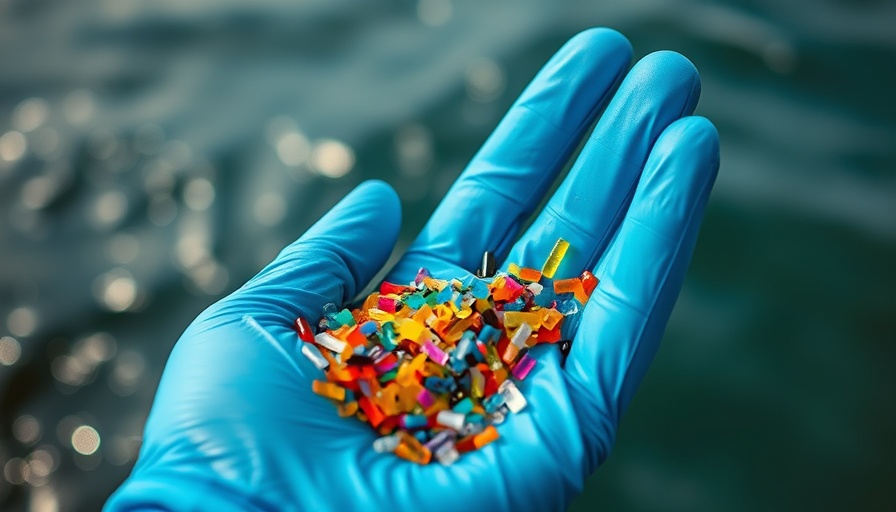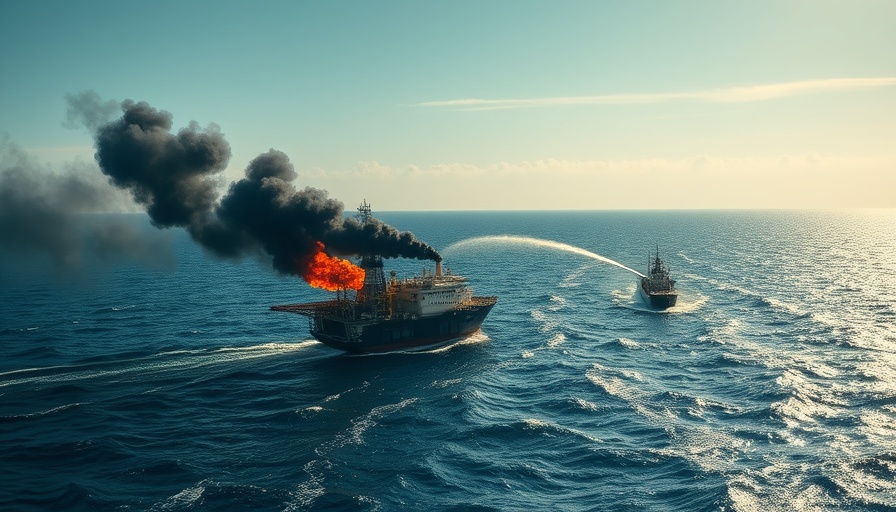
The Hidden Dangers of Microplastics in Texas Waters
The Texas coast's pristine beauty is at risk due to microplastic pollution. Researchers from The University of Texas at Austin recently discovered that while the bay displays fewer microplastic particles than anticipated, the reality is more troubling when you consider the broader ecosystem. Instead of accumulating in Matagorda Bay, these dangerous plastics are being swept into the Gulf of Mexico, posing significant health risks to wildlife and humans alike.
Understanding Microplastics: What You Need to Know
Microplastics, tiny particles less than five millimeters in size, originate from larger plastic debris breaking down over time, as well as from the shedding of synthetic fibers and the degradation of products like personal care items. The Texas coast, identified as a hotspot for plastic debris, reflects global concerns over microplastic pollution.
Environmental Implications: A Growing Concern
The study's findings indicate that although Matagorda Bay seems to contain fewer microplastics compared to other coastal regions globally, the migration of these particles into wider ocean areas magnifies the potential for environmental damage. Once in the Gulf of Mexico, microplastics can absorb harmful chemicals from the water, leading to bioaccumulation in the food chain. This has severe implications not just for marine life, but also for birds and humans who consume seafood from these waters.
Impact on Wildlife: A Ripple Effect
The effects on wildlife can be dire. The ingestion of microplastics can lead to toxic buildup and health complications in animals, including migratory birds that rely on these ecosystems. The interconnectedness of nature's food web means that plastic exposure can have cascading effects through various species, ultimately affecting the broader ecological balance.
Future Implications: What Lies Ahead for Texas Coast?
As Texas grapples with ongoing environmental challenges, the sweeping movement of microplastics into open waters underscores an urgent need for more comprehensive monitoring and strategies to combat plastic pollution. Researchers call for public awareness and action, suggesting that community programs aimed at reducing plastic waste can have profound impacts on local ecosystems.
Take Action: Protecting Our Waters
In light of these troubling findings, it is imperative for residents and visitors alike to pay attention to their plastic use. Engaging in local clean-up efforts, supporting legislation aimed at reducing plastic production, and advocating for sustainable practices can contribute to a healthier marine environment. By collectively acting now, we can help safeguard the Texas coastline for future generations and ensure that our waters remain beautiful and biodiverse.
 Add Row
Add Row  Add
Add 




 Add Row
Add Row  Add
Add 

Write A Comment